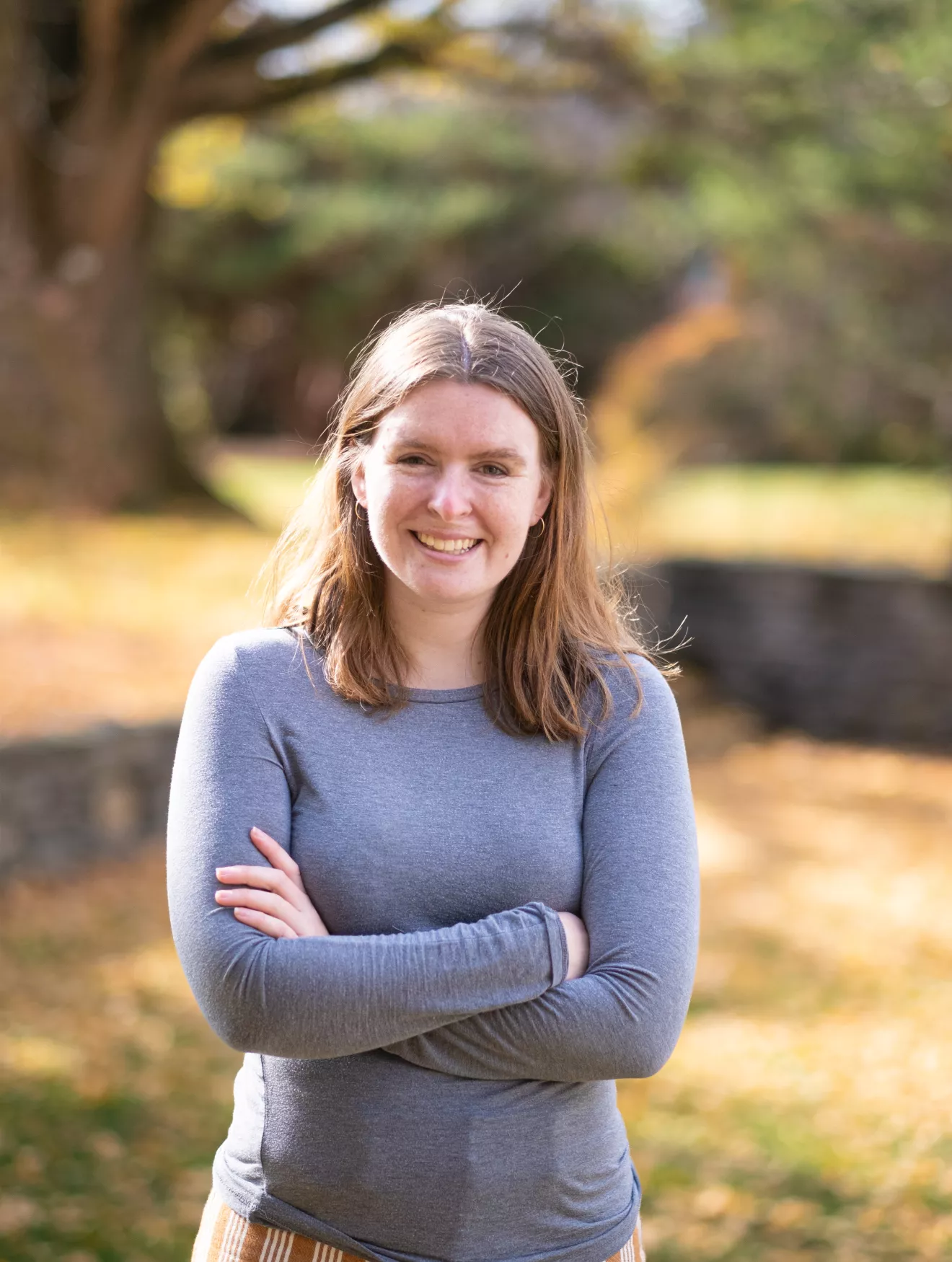
The Hanna Holborn Gray Fellowships offer funded independent research in the humanities. We're highlighting the research of this year's fellows in a series of online profiles.
Lily Goltz '23, Growth and Structure of Cities
"Neurodivergency in Museums"
Abstract: In the United States, the current motivation for creating accessibility in public spaces is to meet the requirements and demands of the Americans with Disabilities Act (ADA). Unfortunately, the ADA does not currently include accommodations for neurodivergent people; which is a blanket term that includes people with Autism, ADHD, Down Syndrome, Tourette’s Syndrome, mental illnesses, and more. This report discusses neurodivergency in the setting of museums, comparing art museums to science museums. Through observations and interviews with four museums throughout New York City, this research looks to understand the importance of including neurodivergency in accessibility practices, specifically in museums. Accessibility is an uphill battle for most museums, having to overcome funding issues and employee shortages before they can create progress. The Americans with Disability Act seems to be the only driving force for the museums without accessibility initiatives. The individuals who are tasked with accessibility programming in each museum must have the motivation for future accommodations, where it takes time, effort, and education that they may not currently have. The research was conclusive that by including quiet hours or limited access hours for neurodivergent individuals as well as resources like sensory packets or pre-arrival online information, museums can become significantly more accessible for all individuals.
Was there anything surprising about the work you did?
Coming into this research project with a personal connection to neurodivergency, I was not too surprised by anything I came across. Often I was more disappointed in the lack of awareness on the topic that accessibility directors had at some museums, but I wasn’t surprised.
How will you use your research in the future?
Continuing into the fall, I am using the same topic, now in a different light, for my cities senior thesis. I have expanded on what I learned this summer and now applied it to a bigger field, looking more generally at the topic of neurodivergent accessibility in museums. I am expanding from just New York City museums to both NYC and Philadelphia museums, where I hope to get a wider scope of the topic and work being done. Past my cities thesis I am not sure where I will again get to use this specific research as I am in the UPenn 4+1 Electrical Engineering program with plans to go right into industry after my masters is finished, but I know the research skills and writing skills I have developed in the process will come in handy down the road.
How did you choose your topic?
I chose my topic of neurodivergency in museums for two reasons. One is that I grew up going to museums as a child, my dad is obsessed with art and so whenever we traveled there would be at least one or two museums on the agenda. Due to this, I have grown to appreciate what museums have to offer and how they can be such a powerful tool for learning and taking in information in a different way. The next reason is that I have both been interested by the lack of accessibility practices that exist in public spaces, and I have grown up in a household with neurodivergency present. Combining these two factors, it has driven my passion for researching how to make the world a more accommodating place, so more individuals can experience things just as anyone else would.
The Hanna Holborn Gray Fellowships offer funded independent research in the humanities. Each summer, Bryn Mawr College awards up to 15 students a summer fellowship of $4,500 to undertake an independent research project in the humanities or humanistic social sciences. The research may either be the beginning of the senior thesis or a project that stands alone, but is relevant to their intellectual interests and must be supported by a faculty advisor.